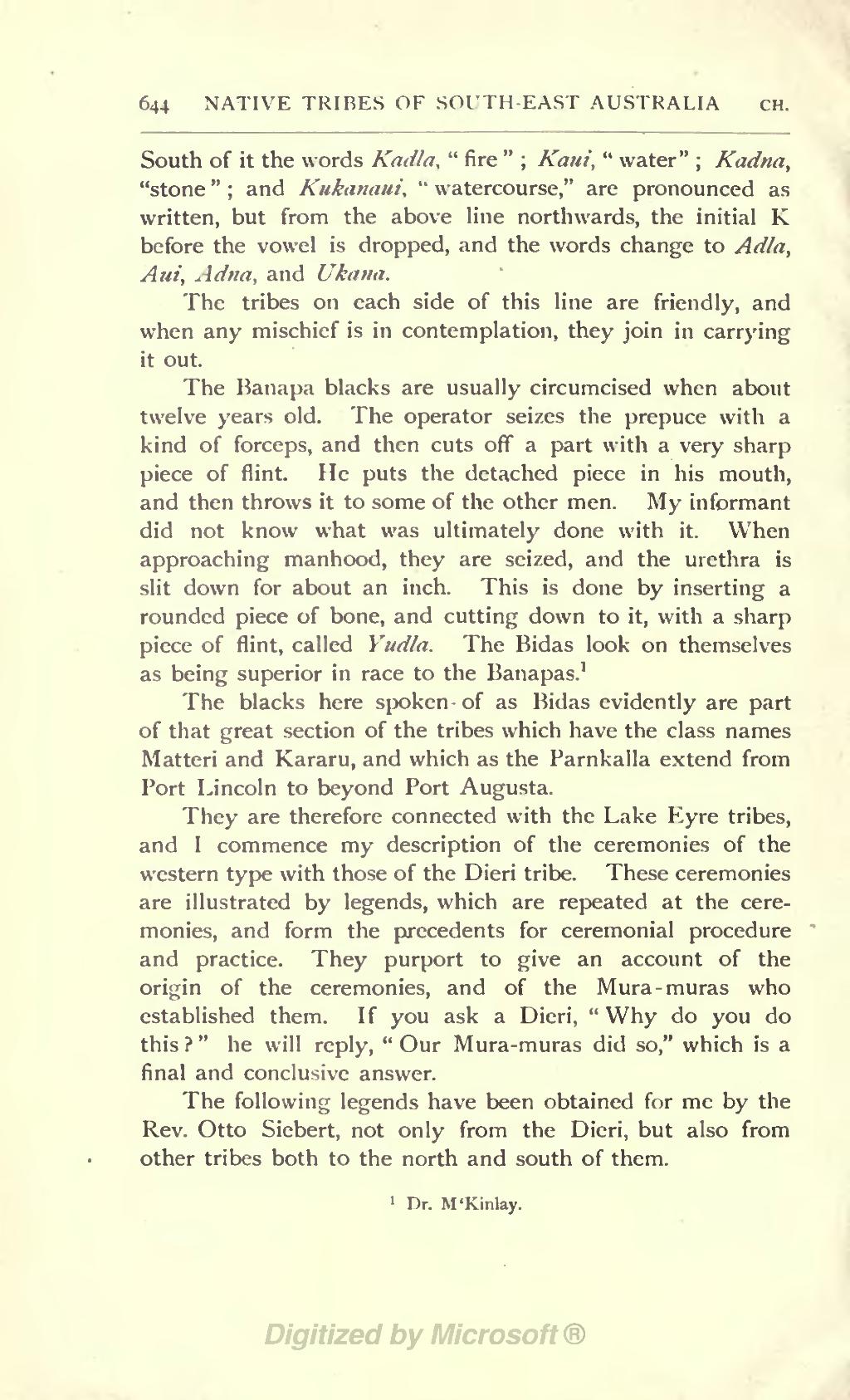South of it the words Kadla, "fire"; Kaui, "water"; Kadna, "stone"; and Kukanaui, "watercourse," are pronounced as written, but from the above line northwards, the initial K before the vowel is dropped, and the words change to Adla, Aui, Adna, and Ukana.
The tribes on each side of this line are friendly, and when any mischief is in contemplation, they join in carrying it out.
The Banapa blacks are usually circumcised when about twelve years old. The operator seizes the prepuce with a kind of forceps, and then cuts off a part with a very sharp piece of flint. He puts the detached piece in his mouth, and then throws it to some of the other men. My informant did not know what was ultimately done with it. When approaching manhood, they are seized, and the urethra is slit down for about an inch. This is done by inserting a rounded piece of bone, and cutting down to it, with a sharp piece of flint, called Yudla. The Bidas look on themselves as being superior in race to the Banapas.[1]
The blacks here spoken of as Bidas evidently are part of that great section of the tribes which have the class names Matteri and Kararu, and which as the Parnkalla extend from Port Lincoln to beyond Port Augusta.
They are therefore connected with the Lake Eyre tribes, and I commence my description of the ceremonies of the western type with those of the Dieri tribe. These ceremonies are illustrated by legends, which are repeated at the ceremonies, and form the precedents for ceremonial procedure and practice. They purport to give an account of the origin of the ceremonies, and of the Mura-muras who established them. If you ask a Dieri, "Why do you do this?" he will reply, "Our Mura-muras did so," which is a final and conclusive answer.
The following legends have been obtained for me by the Rev. Otto Siebert, not only from the Dieri, but also from other tribes both to the north and south of them.
- ↑ Dr. M'Kinlay.
